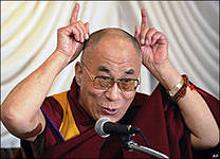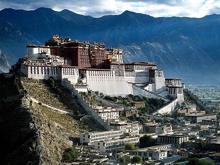
China’s chief domestic political stability problem is its ethnic heterogeneity. Unlike the European Union, however, China has a core population — the Han Chinese. This buttresses China’s national identity.
What are China’s leaders doing to strengthen its integrity today? They are striving to increase the percentage of Hans in the populations of outlying areas like Manchuria (Dongbei), Inner Mongolia, Xinjiang and Tibet (the Hans have predominated in the south since ancient times).
For example, whereas in 1959 Uighurs in Xinjiang comprised 70% of the total population of the Xinjiang-Uighur Autonomous Region, their percentage had dropped to 45.2% by 2000 (while their total number increased). The percentage of Hans, who were a minor population segment in the mid-20th century, had grown to 40.6% there by 2000. This has not been happening just in the XUAR; it has also been occurring in other historic provinces. In the Inner Mongolian Autonomous Republic, for example, the Han Chinese had an absolute majority — 79.2% — by the year 2000, whereas the Mongols comprised only 17.1%. Particularly large shifts have occurred in the population of historic Manchuria, where on Chinese were banned from settling almost until the end of the 19th century. At 12.9%, Liaoning Province had the largest percentage of Manchus in 2000 (Hans made up 84%). The percentage of Manchus was even lower in the other provinces.
The situation is somewhat different in the Tibet Autonomous Republic (which is part of historic Tibet). In 2000, it had 2,411,000 Tibetans (92.2%) and only 155,000 Hans (5.9%). Why is it that Tibet, or more precisely the TAR, does not fit the overall political policy of China’s leaders? The reason is simple.
Tibet is a mountainous country with very severe environmental conditions, and just to simply live here without the burden of physical labor demands a long period of acclimatization and unusual incentives beyond basic survival. That applies specifically to immigrants, because the indigenous Tibetan populace is accustomed to it from birth and gives little thought to alternatives. Native Tibetans have had centuries to adapt to the high mountainous conditions where low oxygen causes altitude sickness. The Hans are not adapted to those conditions. Tibetans have a higher concentration of oxygen in the blood, more rapid respiration and wider arteries and capillaries through which oxygen is delivered to their organs. These characteristics militate against members of the Han majority resettling in Tibet.
That readily explains the interest shown by the US State Department and American intelligence in Tibet, its indigenous separatists, Buddhism, the Dalai Lama and the entire “orange” and mountainous region. The TAR borders on India, with which China has very tense relations that sometimes erupt into border conflicts. In addition, India belongs to the (British) Commonwealth of Nations. In the 19th-century, opium was produced here and marketed in China.
China holds onto the TAR primarily because it is much more secure to have its border with India in a mountain range that is virtually impassable for vehicles and military units than to have a border close to its interior. This suggests that the Tibetan problem can only be successfully resolved if no powerful country that wants to destroy China and profit from its collapse is interested in Tibet.
In addition to the traditional ethnic problems inherent in any multi-ethnic state, as well as the social, economic and domestic political turmoil, China has not avoided the “orange” problem, either. Russia is more familiar with this problem than any other country. National Security Council directive NSC 20/1 captures the essence of the problem.
According to its authors, the “orange” problem “derives from a congenital fifth-columnism with which a certain small percentage of people in every community appear to be affected, and which distinguishes itself by a negative attitude toward the native society and a readiness to follow any outside force which opposes it. This element will always be present in any society…, and the only protection against its dangerous misuse will be the absence of the will on the part of great-power regimes to exploit this unhappy margin of human nature.”1
It is worth noting that a powerful North American regime actively uses this “unhappy margin” throughout the world, terming it a “struggle for democracy and human rights.”
We know that the Nobel Peace Prize is always awarded with an obvious political subtext. Quite often, 
Liu Xiaobo was proposed for the Nobel Peace Prize as a prominent dissident and anti-government activist on a par with Czech President Václav Havel and the Dalai Lama, who fled China after the separatist revolt of 1959 was defeated. Both the Dalai Lama and Liu Xiaobo have received the Nobel Peace Prize. In addition, in 2006 the world’s leading Buddhist received the highest award given by the United States — the Congressional Gold Medal.
Chinese (like Russian) regime fighters and human rights activists are actively assisted by the European Parliament. In June 2012, the latest in a series of hearings on problems of democracy and human rights in China was held in Brussels. It was attended by representatives of some of China’s ethnic minorities, Falun Gong cultists, independent journalists, etc.
Deutsche Welle journalist Su Yutong said at the hearing that the Chinese Communist Party considers the Falun Gong, Tibetans, Muslim Uighurs and the Tiananmen Square massacres to be their most sensitive and crucial problems. I should point out here that these issues are not actually the “most” sensitive problems of China’s leaders, much less their most crucial. Rather, it is that China’s dissidents are actively pushing these issues with the support of European and American government agencies. Put in the language of criminal law, they are inciting ethnic and religious strife.
Tunne Kelam, a member of the European Parliament from Estonia, has discovered a terrible secret that was carefully covered up by Chinese government. He said Chinese authorities are involved in extensive organ harvesting, for which they kill prisoners. Finally, Wei Jingsheng, who incidentally is a Sakharov Prize winner, told the European MPs that human rights in China today are in their most dangerous phase.
Here, it is worth asking what Gorbachev, Havel, the 14th Dalai Lama, the Nobel Peace Prize and the Sakharov Prize, Chinese cultists, Russian human rights activists, the Congressional Gold Metal, the European Parliament, etc., etc. all have in common? We are obviously dealing with a well-organized international network of agents engaged in anti-government activities under the guise of fighting for human rights on behalf of the West in countries that aspire to an independent and separate existence.
This is not a conspiracy. It is simply a tool for suppressing opponents and engaging in competition.
Konstantin Penzev is an author and historian and a columnist for New Eastern Outlook.
